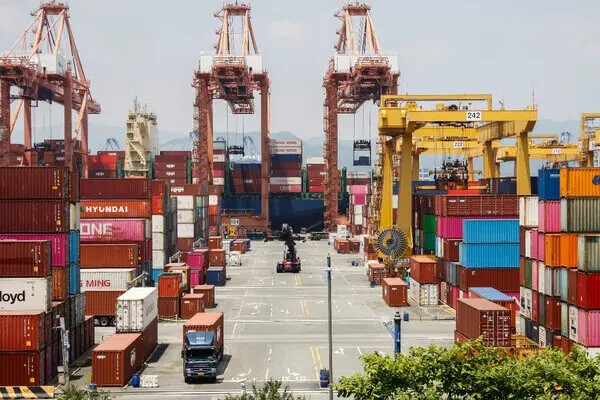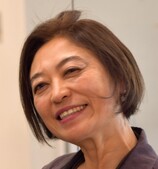
The South Korean government has announced an emergency support package for export companies affected by U.S. tariff measures, including expanding low-interest operational loans. The total trade finance available to all exporting companies will be increased from the previous ₩256 trillion to a maximum of ₩270 trillion.
The government will also allocate ₩170 billion for interest rate subsidies to aid exporters in the steel, aluminum, and related sectors, which are directly impacted by a 50% item-specific tariff. This support plan was revealed during a joint ministerial meeting on economic and industrial competitiveness.
While the government successfully negotiated with the U.S. to lower the mutual tariff rate from a planned 25% to 15% and the automobile tariff from 25% to 15%, it acknowledged that even the reduced tariffs could negatively affect exports. This prompted the development of the current support package to address corporate difficulties.
Low-Interest Loans and Expanded Financial Support
The government is prioritizing the financial stability of affected companies by leveraging a ₩13.6 trillion policy fund. A significant portion of this is aimed at small and medium-sized enterprises (SMEs) and mid-sized companies, which often lack the resources to handle trade issues.
Loan Limits Increased: The Korea Development Bank (KDB) will raise the maximum limit for its "low-interest loans for tariff-affected industries" tenfold. For SMEs, the limit will increase from ₩3 billion to ₩30 billion, and for mid-sized companies, from ₩5 billion to ₩50 billion. Loan interest rates will also be lowered by an additional 0.3%.
Expanded Eligibility: The Export-Import Bank of Korea will extend its "crisis response special program" to include companies with credit ratings of 'p4' or lower, expanding the previous 'p5+' limit.
Emergency Funds: The Small and Medium Business Corporation will add copper exporters to the list of businesses eligible for its "trade risk response emergency funds."
To enhance liquidity for exporting companies, the government is expanding the trade insurance program to an unprecedented ₩270 trillion, an increase of ₩14 trillion from the ₩256 trillion announced in February. The 60% discount on insurance and guarantee fees for SMEs and mid-sized exporters will be extended until the end of the year, as will the 90% special discount on export insurance fees for companies with less than $1 million in exports.
For companies whose financial health has deteriorated due to tariffs, the government will ease guarantee requirements through special reviews and raise the export insurance limit from 2x to 2.5x.
The "tariff response export voucher" support program will be expanded to a total of ₩420 billion by combining supplementary and next year's budgets. The limit for logistics support will be raised from ₩30 million to ₩60 million, and consulting cost limits will increase from ₩120 million to ₩150 million. The Korea Trade-Investment Promotion Agency (KOTRA) will also provide proxy services for U.S. customs pre-examinations through its "Tariff Response 119" service.
Specialized Support for Steel and Other Key Sectors
For the steel, aluminum, copper, and related derivative product exporters facing the 50% tariff, a specialized support package of ₩570 billion will be implemented. This includes new interest rate subsidy programs and the allocation of emergency low-interest loans.
Loan Subsidies: The government will subsidize loan interest rates by 2.0% for SMEs and 1.5% for mid-sized companies in these sectors, supporting a total of ₩150 billion in loans.
Emergency Loans: The Korea International Trade Association (KITA) will provide ₩20 billion in emergency loans with low interest rates of 1.5% to 2.0% for its member companies.
라이선스 제공자: Google
Similar to Hyundai Motor and Kia's recent "supplier incentive financial program" worth ₩630 billion, the government will encourage major companies and commercial banks in the steel and aluminum sectors to create support programs for their suppliers. These programs will include favorable interest rates for production funds and expanded guarantee limits, which are expected to generate approximately ₩400 billion in support.
The government is also implementing short-term measures to boost domestic demand and absorb the tariff shock. These include introducing new electric vehicle conversion subsidies, offering high-efficiency appliance purchase rebates, promoting the use of domestically produced steel in infrastructure projects, and encouraging the replacement of old machinery.
In addition, the government will strengthen its response to unfair trade practices, with the Korea Customs Service focusing on preventing indirect exports and misrepresenting the origin of goods. The government will also revise the Customs Act and the Foreign Trade Act. Support for domestic investment will be enhanced through the creation of a ₩100 trillion 'National Growth Fund', attracting foreign investment, and increasing subsidies for "onshore companies" that return to Korea due to tariff impacts.
To diversify export markets, support for overseas exhibitions, trade delegations, and Hallyu expos will be expanded from 1,600 to 3,000 companies. The number of region-specific exhibitions will also increase from 18 to 68. Financial and marketing support for promising export industries like K-content, K-food, and K-beauty will be strengthened to diversify export products.
The government plans to announce mid-to-long-term strategies for key industries, including "AI Future Car Competitiveness Enhancement," "Steel Industry Advancement," and "Rechargeable Battery Competitiveness Enhancement" plans later this year.
"This package, created by 13 ministries, will be implemented with a sense of urgency so that its effects can be felt on the ground," said Minister of Trade, Industry and Energy, Kim Jung-kwan. "We will continue to identify and develop necessary support measures to help our export companies respond promptly to the rapidly changing trade environment and create new opportunities."
[Copyright (c) Global Economic Times. All Rights Reserved.]




























